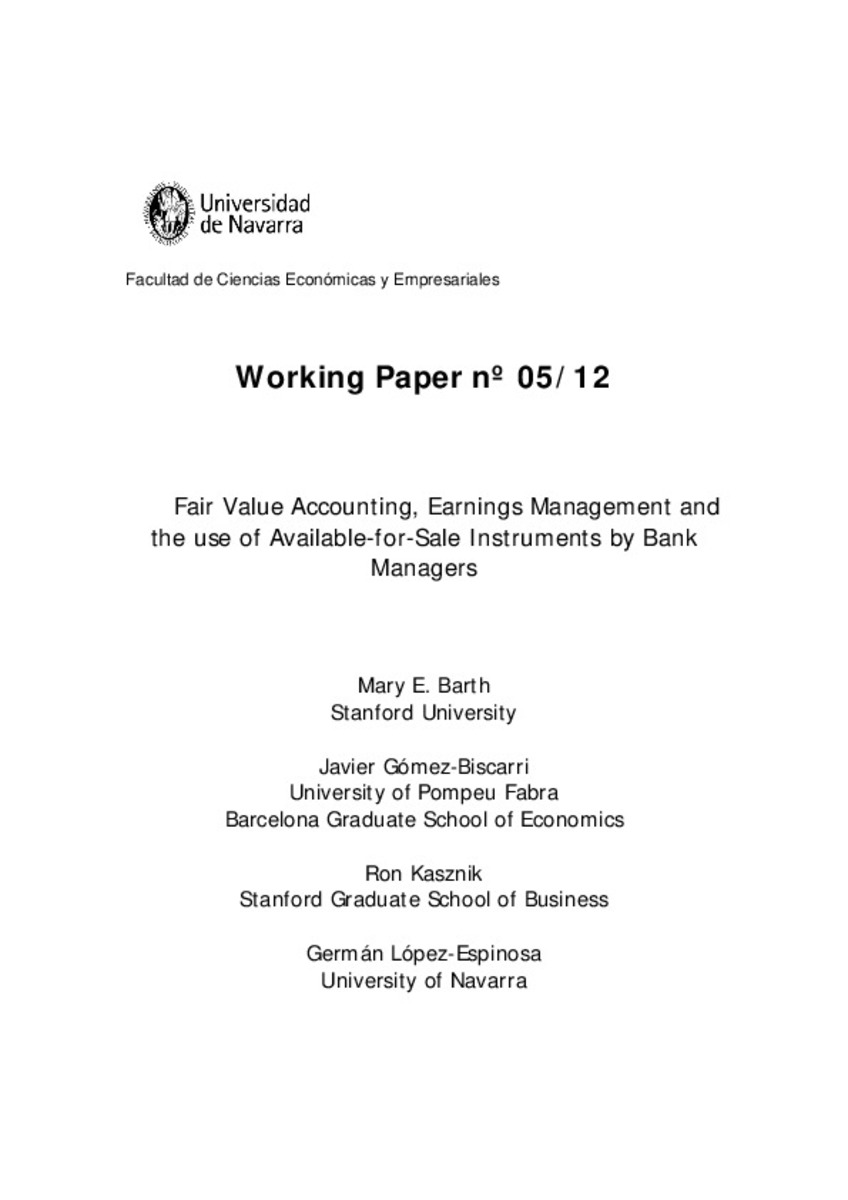Fair Value Accounting, Earnings Management and the use of Available-for-Sale Instruments by Bank Managers
Palabras clave :
Materias Investigacion::Economía y Empresa
Fair value accounting
Bank earnings
Earnings management
Income smoothing
Available-for-sale asse
Fecha de publicación :
2012
Cita:
Barth, M. E. (Mary E.); Gómez-Biscarri, J. (Javier); Kasznik, R. (Ron); et al. "Fair Value Accounting, Earnings Management and the use of Available-for-Sale Instruments by Bank Managers". En . , 2012,
Aparece en las colecciones:
Estadísticas e impacto
0 citas en

0 citas en

Los ítems de Dadun están protegidos por copyright, con todos los derechos reservados, a menos que se indique lo contrario.







